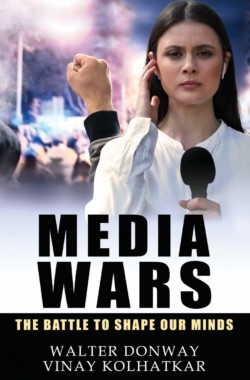Espying Our Future in Brazilian Evangelicalism
There are more Christian evangelicals in the United States than in any other country in the world, some 94 million individuals, more than a quarter of the population, and about one-third of the world’s evangelicals. They also are the country’s largest religious group, followed by Catholics and “mainline” Protestants.
Therefore it is useful, and fair, to ask if we can discern intimations of our future by looking at trends in the country with the next largest concentration of evangelicals, Brazil. Reports from Brazil in recent weeks describe horrific stories of botched illegal abortions, with women rushed to hospitals bleeding and with corrosive chemicals in their uteruses. The Guardian reported, December 11, about three such women brought in September to Rio de Janeiro’s largest hospital for obstetrics. One survived in intensive care, one died, and one, a 25-year-old mother, barely survived but with surgery that cost her both her feet.
No abortions are legal in Brazil except to save a mother’s life, or if a woman has been raped, or if the fetus has anencephaly. Except in these cases, women who seek an abortion and doctors or others who aid in an abortion are subject to years in prison. Thus, there are no legal abortion clinics in Brazil. Until a few years ago, however, clinics that provided abortions were tolerated unofficially in many parts of Brazil. The reason is obvious: Despite the illegality of the procedure, the abortion rate in Brazil was reported at two per woman over a lifetime (World Bank report)—and the annual total rate is estimated at one million abortions, though some estimates put it 50 percent higher than that.
In 2007, the government “got serious” about enforcing laws against abortion. Police raided a large abortion clinic, arrested and prosecuted doctors and staff, and hauled away patient records in order to pursue thousands of former patients. That more or less ended abortions as an illegal, but tolerated, procedure in regular clinics. Abortion went underground, is now controlled in many cases by criminal gangs, and can be hugely expensive. And it doesn’t work. In 2005, about 300,000 women were hospitalized for complications of unsafe abortion.
What changed, in Brazil, was not the law against abortion, which Brazil elevated to the level of constitutional law by signing a 1969 Latin American “human rights” treaty. What changed was the political power of attitudes toward abortion.
And that brings us to the evangelicals. At the end of the 19th Century, virtually all Brazilians were Catholic, at least in designation. But beginning in the 20th Century, the powerful evangelical movement, driven by missionary zeal in countries like England and the United States—but also brought by millions of German immigrants of pietistic Protestant churches—took hold in Brazil. In the past two decades, much as in the United States, Evangelicalism has seized the minds of Brazilians, especially the poor and less-well educated, and fully one quarter of Brazilians now identify themselves as evangelicals. They view the “right to life” as beginning at conception (giving force to the same doctrine in the human rights treaty signed by Brazil); they have formed fronts against abortion, and they provide the passion and political push that eliminated official “tolerance” for abortion.
In the 2010 elections in Brazil, evangelical candidates gained 50 percent more seats in the congress, and more seats recently, and now represent a powerful, unified, and vocal minority against legal abortion. Recent stories of women who paid (for them) a fortune for an illegal abortion being brought to hospitals with tubing perforating their intestines and uteruses, or found dead with teeth and fingers removed to prevent identification of the corpse, have stirred action. But not action to make abortions legal and accessible: a crackdown on what the Guardian story called “the biggest abortion mafia in Brazil.”
In the United States, the huge and growing evangelical population also opposes abortions, also forms anti-abortion fronts, and also seeks political power to enforce their views against abortion. In the run-up to every U.S. Presidential election, candidates seeking the Republican nomination must avow their opposition to abortion, at the very least giving (an oxymoron) “serious lip service” to it. In many states, the same is required of candidates for the Senate and House. During the election itself, the candidate tries to downplay this anti-abortion stand, hoping some of the electorate will not take seriously what was said during the nomination period.
The reason, again, is evangelism, a religious branch of Protestantism that goes back several centuries in Britain and America. For example, evangelical Christians drove two of the most powerful and dramatic social movements in U.S. history. The First Great Awakening, led by the Massachusetts philosopher and preacher, Jonathan Edwards, and by converts George Whitfield and the Wesley brothers, flamed through the thirteen American colonies in 1739-40, and gets much of the credit for uniting the colonists in common feeling and preparing them for the great struggle of the American Revolution. The Second Great Awakening, more of a religious revival, swept the country 50 years later, in 1790.
“Evangelism,” derived from the Greek for “gospel” or “good news,” is characterized by the doctrine that one is “saved” by faith in Jesus Christ’s atonement on the cross for mankind’s sin. The doctrine is bolstered by belief in the “inerrancy” or infallibility of the New Testament; by emphasis on conversion; and by emphasis on actively seeking to convert, and so ‘save,” others. This may sound, in general, like generic Christianity, but it is not. It is extreme Protestantism, rejecting religious ritual, religious theology, and, above all, any mediation of worship or salvation by any church, cleric, or other formal aspect of religion.
The enormous appeal of evangelism appears to arise from belief that conversion can be an on-the-spot experience (as at a camp revival meeting), known and affirmed only by oneself, requiring no preparation and no verification, and, in itself, permanently and unqualifiedly guaranteeing salvation—Heaven. I will not dwell much further on the nature of evangelism, except to add that in the 20th Century, when evangelism in the United States came to be called “fundamentalism” (the two are not identical, however), it also became a powerful worldwide missionary movement. Some evangelicals, extreme within the movement, added a colorful, dramatic recruiting concept, the “end of times,” expected to arrive at any moment, when those saved will be taken up into Heaven (the “Rapture”) and the rest will suffer increasing horrors until Judgment Day.
Today, most American Protestants belong to evangelical denominations and this reflects a dramatic worldwide movement. During the 40 years from 1960 to 2000, Evangelicalism worldwide grew at three times the rate of world population (and even grew twice as fast as Islam). One new denomination after another pops up in country after country, including the United States—with no formality, no shared structure, no rules, and with salvation by personal choice, any church, with any name, and any emphasis is possible.
In the United States, to the annoyance of Democrats, and the horror of many “progressives,” evangelicals have been overwhelmingly on the political “right”—loosely, conservative Republicans. For example, among evangelicals the voting for President George W. Bush’s re-election was four to one. So far, Republican presidents have not pleased the evangelicals on the abortion question, although President Bush was seen to nominate to the Supreme Court two justices perceived to oppose abortion.
Nevertheless, politics in the United States are shaped at every election by the views and pressures of the evangelical vote. Opposing abortion is not an option for a Republican seeking nomination. For those (say libertarians or classical liberals) who would use the Republican Party to extend liberty–reducing government’s power, reach, and spending—the hold of Evangelicalism over the party represents a blatant contradiction. Libertarians and classical liberals view a mother’s choice of whether or not to bring a pregnancy to term as almost a defining instance of liberty, of the right to life—to choice of values and actions—not of the part of the embryo or fetus, but on the part of the adult human being that of the mother.
Till now, the political struggle over abortion—over upholding the Supreme Court’s Roe V. Wade decision of 1973 affirming a woman’s Constitutional right to an abortion—has hung in the balance. This has seriously curtailed the potential role of the Republican Party in what should be its overriding mission: to roll back burgeoning government power and so to enlarge freedom. But at least so far, the composition and attitudes of the electorate at large have frustrated the goal of the American evangelicals.
That goal is to put the United States in the same legal position as Brazil by defining the “right to life” as applying, in full, starting at conception, and making it a crime to seek or assist in an abortion. It is dishonest, even vicious, for evangelicals to deny that the situation in Brazil is what they hope to achieve in the United States when their numbers and political power are sufficient. The law in Brazil exactly defines the American evangelical position. Naturally, evangelicals will claim that since they seek to make abortion, starting at conception, illegal—indeed, many would define it as murder—they would not tolerate the illegal abortions and ensuing horrors that occur in Brazil.
And perhaps they would not. So far, for women in Brazil brought to hospitals after botched abortions, the frequent penalty is to be arrested (and their treatment by the police is notoriously rough), but, after they are sentenced by the court, to have the sentence suspended, so there is no jail time. Perhaps the American evangelicals, carrying out their convictions consistently, would make abortion punishable as murder. And perhaps that would deter the millions of women, who, as in Brazil, would want to seek an illegal abortion—at almost any risk, any cost.
Perhaps, instead, millions of women, against their wishes and judgment, would be forced to have babies. A large percentage of the women in Brazil who are victims of botched abortions are poor and less-educated; wealthier women can afford to leave the country to obtain a legal abortion.
What seems more likely than that scenario, given the passion and activism on the pro-choice side of the debate in America, and the aggressiveness of Americans involved in politics, is that the growing evangelical movement and political power will ignite a firestorm of conflict if and when evangelicals achieve the power to ban abortion. This could make for civil conflict, “unrest,” reminiscent of the civil rights movement at its most violent and confrontational.
No one knows for sure. But what is happening in Brazil, today, and its ominous parallels with trends in the United States, tell us that the partisans of liberty, legitimate human rights, and the role of reason and science in human affairs have been far too complacent about the growing evangelical movement. Today, it represents the single greatest threat to secular society, including the separation of church and state, that has so long “kept the peace”—through many times of trial—in America.
One of the most powerful and consistent philosophers of reason and liberty during the 20th Century, Ayn Rand, once warned that it would be the greatest tragedy if America’s advocates of liberty, having defeated the external threats of fascism and communism, and the internal threat of liberal-left statist government, were to see their country succumb to the forces of authoritarian religious conservatism.
Brazil today gives us a glimpse, if only a glimpse, of what that would mean.
« Where Guns are Outlawed, only Outlaws have Guns The True Meaning of Gaia »










